If you suffer an accident at work in Northern Ireland, your employer has legal responsibilities they must meet. These obligations aim to protect your health, safety, and welfare at work. You have rights, and your employer must uphold them under Northern Ireland law.
This guide explains your employer’s responsibilities after an accident at work, so you know exactly what to expect and how to respond.
Understanding Your Employer’s Responsibilities
Under the Health and Safety at Work (Northern Ireland) Order 1978, your employer has a duty of care. They must take all reasonably practicable steps to ensure your health and safety while you’re at work.
Key Legal Duties Include:
- Risk assessments: Identifying workplace hazards and implementing control measures.
- Training and supervision: Ensuring you are properly trained and supervised.
- Safe equipment and systems: Providing tools, machinery, and systems that are safe to use.
- Health and safety policy: Communicate this clearly and regularly review it.
- Consultation with staff: Engaging you or your safety representatives on safety matters.
Learn more on NIDirect – Employers’ Health and Safety Responsibilities
Immediate Steps After an Accident at Work

After an accident, your employer must act quickly and responsibly. These actions help protect your health and fulfil legal obligations.
What They Must Do:
- Provide first aid: Your employer must ensure appropriate first aid equipment and trained personnel are available.
- Record the incident: All work-related accidents must be recorded in the accident book.
- Assess the risk again: Your employer should revisit the risk assessment and make any necessary changes.
Full guidance at NIDirect – Accidents in the Workplace
Reporting Accidents to the Authorities (RIDDOR)
Under the Reporting of Injuries, Diseases and Dangerous Occurrences Regulations (RIDDOR), your employer must report certain incidents to the Health and Safety Executive for Northern Ireland (HSENI).
Incidents That Must Be Reported:
- Fatalities
- Major injuries (e.g. fractures, amputations)
- Injuries causing absence for more than 3 consecutive days
- Dangerous occurrences (e.g. structural collapses, gas leaks)
Failure to report can result in enforcement action or prosecution.
Keeping Proper Records
Your employer must maintain accurate and up-to-date health and safety records, including:
- Records of workplace injuries and near-misses
- Documentation of all risk assessments and safety measures
- Logs of staff training, briefings, and health and safety meetings
These records are not just best practices, they’re a legal requirement and can be critical in any subsequent investigation or compensation claim.
Supporting You After an Injury
After an accident at work, your employer has a duty to support your recovery and return to work. Their responsibilities include:
- Arranging medical treatment (if needed)
- Keeping in touch during your time off
- Providing a phased return to work or light duties where appropriate
- Making reasonable adjustments under disability and equality laws
This support shows their commitment to workplace safety and helps prevent further harm.
Communication and Consultation
Your employer must keep you informed and involved in workplace safety decisions. This includes:
- Informing you of any new or ongoing risks
- Involving you or your safety representative in decisions about safety measures
- Responding to concerns you raise
A safe working environment is a shared responsibility, and employers must foster open, two-way communication.
Consequences for Employer Non-Compliance

If your employer fails to meet their legal responsibilities after an accident at work, the consequences can be serious, both for them and for you. The law in Northern Ireland holds employers accountable for breaches of health and safety obligations.
Here’s what happens when your employer does not comply with their duties:
- Enforcement Action by HSENI- The Health and Safety Executive for Northern Ireland (HSENI) investigates workplace accidents, particularly where serious injuries or unsafe practices are reported.
- Prosecution and Criminal Penalties- If your employer’s breach is severe or involves gross negligence, especially if someone is seriously injured or killed, HSENI may bring criminal charges.
- Civil Compensation Claims- As an injured employee, you may also take legal action against your employer in the civil courts. If your injury resulted from their negligence or failure to fulfil their legal duties, you can claim compensation, request interim payments or pursue additional damages
Employers cannot ignore their obligations; you have every right to hold them accountable.
What You Should Do After an Accident at Work
If you’re injured, take action immediately. This protects your health and your legal position.
Your Action Plan:
- Report the accident to your manager or supervisor
- Ensure the incident is logged in the accident book
- Seek medical treatment from your GP or A&E
- Gather evidence (photos, witness names, and any unsafe conditions)
- Seek legal advice to explore your right to claim compensation
You can learn more about this on NIDirect – Reporting an Accident at Work
How We Can Help
If you’ve suffered an accident at work and believe your employer failed in their responsibility, we’re here to help. At My Personal Injury Claim, we specialise in work accident claims across Northern Ireland.
You don’t have to navigate this alone. We’ll assess your claim at no cost, handle all legal paperwork and communication, and fight to secure the compensation you deserve.
Contact us today for a free, no-obligation consultation. We’ll listen, advise, and act — so you can focus on your recovery.








